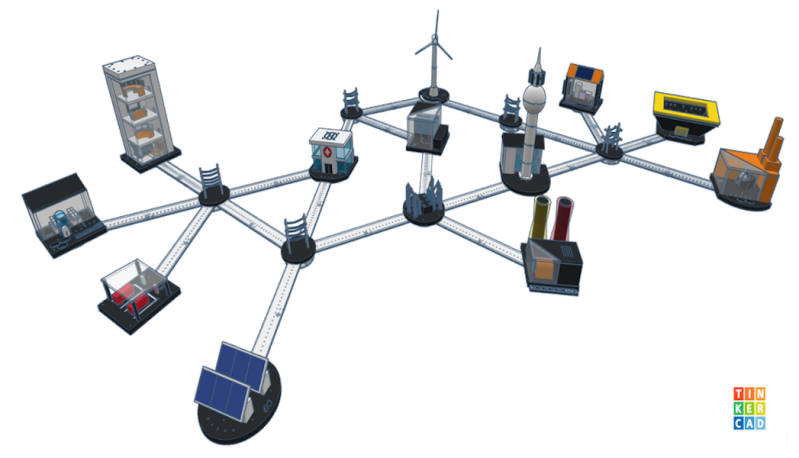Emulating a Power Grid

The electric power grid, as it exists today, was designed about a century ago to accommodate large, dispersed power plants owned and controlled by the utilities themselves. At the time this seemed like a great idea, but as technology and society have progressed the power grid remains stubbornly rooted in this past. Efforts to modify it to accommodate solar and wind farms, electric cars, and other modern technology need to take great effort to work with the ancient grid setup, often requiring intricate modeling like this visual power grid emulator.
The model is known as LEGOS, the Lite Emulator of Grid Operations, and comes from researchers at RWTH Aachen University. Its goal is to simulate a modern power grid with various generation sources and loads such as homes, offices, or hospitals. It uses a DC circuit to simulate power flow, which is visualized with LEDs. The entire model is modular, so components can be added or subtracted easily to quickly show how the power flow changes as a result of modifications to the grid. There is also a robust automation layer to the entire project, allowing real-time data acquisition of the model to be gathered and analyzed using an open source cloud service called FIWARE.
In order to modernize the grid, simulations like these are needed to make sure there are no knock-on effects of adding or changing such a complex system in ways it was never intended to be changed. Researchers in Europe like the ones developing LEGOS are ahead of the curve, as smart grid technology continues to filter in to all areas of the modern electrical infrastructure. It could also find uses for modeling power grids in areas where changes to the grid can happen rapidly as a result of natural disasters.
Post a Comment